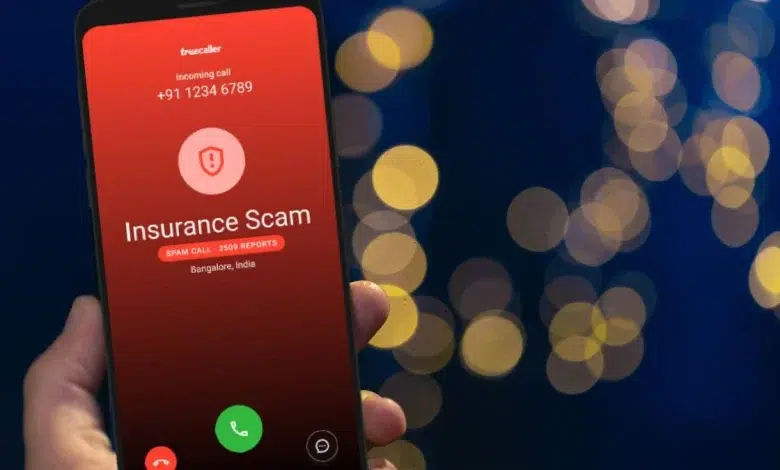Truecaller Faces POPIA Violation Complaint from SA Companies

Table of contents
Overview of the Complaint Against Truecaller
Several South African companies and individuals have lodged formal complaints against the popular call screening app Truecaller… Alleging violations of the Protection of Personal Information Act (POPIA). The Information Regulator has confirmed it is investigating these complaints. The complaints claim that Truecaller’s data practices may contravene South Africa’s privacy laws. The probe was triggered by concerns that the app processes and shares personal information without adequate consent or safeguards.
RELEVANT ARTICLE: Spam Calls Surge in South Africa: Why Apps, Laws, and Tech Fixes Aren’t Enough
What Is Truecaller and How Does It Work?
Truecaller is a widely-used app that identifies incoming calls by matching phone numbers to a global database, alerting users about spam or unknown callers. It allows users to upload their entire contact lists, which helps build the database but raises privacy concerns.
The app provides services such as call blocking and caller identification, with additional features available through paid subscriptions. It has become especially popular in South Africa, where many users rely on it to avoid nuisance calls from telemarketers and scammers.
Allegations of POPIA Violations
Critics and legal experts warn that Truecaller’s method of collecting and sharing personal information may breach POPIA in several ways:
- Data Collection without Consent: Truecaller allows users to upload the contact details of others without those individuals’ direct consent. Many non-users may not know their information is being included in the database.
- Cross-Border Data Transfers: POPIA restricts transferring personal data outside South Africa unless companies have binding agreements ensuring compliance with local privacy regulations. Truecaller’s global database raises questions about these safeguards.
- Responsibility for Data Processing: Despite Truecaller’s terms that put responsibility on users to obtain consent, South African law holds Truecaller as the “responsible party” accountable for how data is collected, processed, and shared.
- Lack of Direct Notification: Experts argue Truecaller should notify individuals when their data is added, allowing them the choice to remove their numbers from the app’s database.
Truecaller’s Response and Stance
Truecaller has denied any wrongdoing, stating that their service empowers users and protects their communication. A company spokesperson emphasised their commitment to upholding data privacy standards and disputed claims that businesses can pay Truecaller to whitelist their numbers.
They clarified that Truecaller does not offer any “whitelisting” service to block labels as spam in exchange for fees. Instead, the app relies on user reports to identify spam numbers and protect users from nuisance calls.
Truecaller also highlighted features allowing users to edit profiles, download data, and opt out of the service entirely. They maintain that the app balances individuals’ rights to privacy with their right to know who is calling.
Impact on South African Businesses
Local telemarketers and companies have raised concerns that Truecaller harms their business by labelling legitimate business numbers as spam. Complaints argue this mislabeling affects customer reach and sales, especially for call centres and service providers relying on phone communication.
Legal experts note the Information Regulator would need to show a direct link between Truecaller’s operations and tangible harm suffered by complainants to hold Truecaller accountable under POPIA.
Legal Opinions and the Way Forward
Some privacy law experts caution that Truecaller’s current practices operate in a grey area of the law. While innovative in improving user experience, the app must ensure full compliance with POPIA’s principles, including transparency, lawful processing, and data subject rights.
Werksmans Attorneys director Ahmore Burger-Smidt and other legal commentators have urged Truecaller to notify individuals when it collects their data and to provide clear options for delisting numbers.
The Information Regulator’s ongoing investigation will clarify whether Truecaller’s data processing policies violate POPIA and outline potential regulatory actions or penalties.
What This Means for South African Users
South Africans using Truecaller should stay aware of the privacy debates surrounding the app. While it offers valuable features for identifying callers and blocking spam… Users need to understand how the app processes their contact information and others’ data.
Experts recommend reviewing Truecaller’s privacy settings, checking permissions, and carefully considering the implications of uploading contact lists without explicit consent from all parties.
Understanding POPIA’s Role in Data Privacy
POPIA, South Africa’s comprehensive data protection law, safeguards personal information by requiring organisations to process data lawfully, store it securely, and share it only with appropriate consent or legal justifications.
The law empowers the Information Regulator to investigate breaches and impose fines or corrective measures on offending organisations. Ensuring compliance is vital for companies operating in South Africa’s digital economy.



